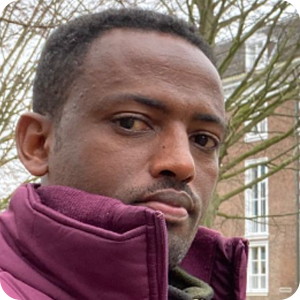“A healthy mind in a healthy body” is not simply a phrase to encourage people to focus more on their overall health, but also a prompt for governments to take action and improve the wellbeing of their populations. Indeed, according to estimates, mental health disorders result in a loss of around US$1 trillion to the global economy on a yearly basis, leading people to stagnation and even poverty. In the midst of multiple crises that have affected the world over the past few years, the connection between mental health and international development is being recognized more and more. Investing in mental health contributes to a reduction in inequality, an increase in productivity, inclusiveness, resilience, and many more benefits. Today, on World Mental Health Day, we discussed the role of psychological well-being in international development with several experts.
Key Takeaways:
- On October 10 every year, the world marks World Mental Health Day to raise awareness of mental health issues and to mobilize efforts to support the cause.
- According to the World Health Organization, over 1 billion people around the world experience some level of mental health condition.
- Mental health is being increasingly recognized – and funded – as a critical component of both global health agendas and the achievement of sustainable development strategies, particularly SDG 3 (Good Health and Well-Being) and SDG 4 (Quality Education).
- Both COVID-19 and ongoing conflicts have significantly exacerbated mental health challenges.
- Low and middle-income countries face serious mental health challenges, including a significant shortage of trained professionals, limited access to services, and stigma.
- Factors such as poverty, violence, and social instability contribute to high rates of mental health disorders and hinder effective treatment and support.
- According to experts, it is crucial to promote cross-sectoral collaboration, increase funding, and ensure mental health is included in national development plans to achieve sustainable improvements.
DevelopmentAid: How has the global focus on mental health evolved in the context of international development over the past decade?

“Over the last decade, there has been a growing recognition of the global burden of mental health disorders and their profound impact, particularly in low- and middle-income countries (LMICs). The World Health Organization and other key organizations have been instrumental in advocating for mental health as a priority, leading to a significant evolution in how it is perceived and addressed within international development. This has resulted in mental health being increasingly recognized – and funded – as a critical component of both global health agendas and sustainable development strategies, including its incorporation into the United Nations SDGs, particularly Goals 3 and 4. There has also been a progressive shift toward a more systemic and integrated approach to mental health, moving away from the isolated initiatives of previous years. This shift has been accompanied by a greater emphasis on community-based and culturally sensitive approaches, as reflected in the most recent international guidelines. Additionally, we have observed a surge of innovations in digital mental health, driven by advances in technology and the need to reach underserved populations. Mobile health (mHealth) platforms, teletherapy, and digital tools for mental health interventions have become more prominent, particularly during the COVID-19 pandemic, which further accelerated the adoption of these technologies. Furthermore, there has been increased attention to the mental health and well-being of the ‘helpers’ –such as healthcare workers, humanitarian aid workers, and social service providers. This shift recognizes the unique challenges and stresses these individuals face in their work, especially in high-stress, crisis, or resource-limited environments. Ensuring that those on the front lines of providing care are themselves supported is crucial to the sustainability and effectiveness of global mental health services. These trends and challenges are reflected in the content of the consultancies I conduct, where a holistic and integrated approach to mental health is now the norm.”

“Lately, global focus on mental health in international development has markedly improved. Initially marginalized, mental health is now increasingly recognized as integral to overall health and development. The inclusion of mental health in the SDGs reflects this shift, highlighting its importance in achieving broader health and well-being targets. Improved global campaigns and policies have driven efforts to integrate mental health into primary health care systems and advocate for policy reforms. This evolving focus aims to address mental health disparities, reduce stigma, and promote a more comprehensive approach to health and development.”

“Over the past few years, the global focus on mental health has advanced significantly within the contexts of international development and humanitarian aid. Previously, mental health was considered less of a priority compared to physical health or education. However, it is now recognized as fundamental to overall well-being and sustainable development, highlighting its impact on productivity, education, and social cohesion. The COVID-19 pandemic underscored the importance of integrating mental health into the recovery and resilience of communities. Despite this, mental health disorders such as depression and anxiety remain the leading causes of disability across the globe and, without a specific focus, these conditions may continue to be under-treated and stigmatized. Humanitarian organizations have started to focus not only on the mental health of the populations they serve but also on their own staff, promoting self-care and psychological support through specific wellness programs. However, for this approach to have a lasting impact, stronger commitment is needed from governments, NGOs, and the private sector. Only through close and unified collaboration can we improve the quality and reach of mental health interventions on the ground, benefiting both those affected and those on the front lines.”

“In recent years, mental health has gained significant recognition on the global health agenda. Many countries have developed policies and strategies to address mental health issues. Still, mental health issues remain on the rise due to war, conflict, climate change, and other socioeconomic problems coupled with limited access to services. Over two-thirds of people with mental health conditions don’t receive the care they need.”
See also: How important is mental health for society and the global economy?

“Over the last decade, mental health has transitioned from being a neglected issue to a central priority in international development. Advocacy efforts, research highlighting the impact of mental illness, and global initiatives like the SDGs and WHO’s Mental Health Action Plan have driven this shift. The Middle East, burdened by conflict and displacement, faces a high prevalence of mental disorders. However, the region is witnessing increased recognition of the importance of mental health and investment in services, particularly for conflict-affected populations. Key trends in this evolution include integrating mental health into broader development programs, focusing on prevention and well-being, adopting community-based approaches to address resource gaps, and viewing mental health through a human rights lens. While challenges persist, the growing momentum to address mental health needs signifies progress. Continued investment in research, advocacy, and services is crucial to ensure mental health remains a core focus in international development, particularly in regions like the Middle East.”
DevelopmentAid: What are the most pressing mental health challenges faced by communities in low- and middle-income countries?

“A significant shortage of trained mental health professionals, including psychologists and, to an even greater extent, psychiatrists, is a huge problem in LMICs. This shortage leads to long waiting times, inadequate care, and broader access issues, severely limiting the ability of the affected communities to address mental health needs effectively. This is particularly concerning given the high(er) prevalence of mental health disorders in LMICs, driven by factors such as poverty, unemployment, social instability, and limited access to basic resources. Moreover, in countries affected by conflict, violence, and natural disasters, there is an especially high incidence of trauma-related disorders. While there have been numerous initiatives aimed at mental health promotion, significant challenges remain in scaling up services, reducing stigma, and ensuring that mental health is adequately funded in proportion to its burden.”

“Mental health challenges in LMICs are deeply rooted in historical, social, and systemic factors. The legacy of colonialism plays a significant role, as many former colonies continue to grapple with structural inequalities and social fragmentation, to which individuals must consistently adapt, resulting in pathologizing intergenerational survival practices (symptoms), rather than addressing the root causes (disease). Colonial practices often disrupted indigenous social systems and imposed alien values, leaving lasting scars of unaddressed collective trauma on communities. The social determinants of health, such as poverty, unemployment, limited access to health care and education, all a legacy of colonialism, further aggravate mental health conditions. These factors create environments where stress, anxiety, and depression are prevalent but often go unaddressed due to a lack of resources and awareness. Moreover, mental health is infrequently seen as integral to overall health by governments in LMICs. This perception leads to inadequate funding and a scarcity of mental health services, leaving many without the care they need. Compounding these challenges is the absence of rights-based approaches to mental health.”

“Communities in LMICs face significant mental health challenges, including limited access to services, stigma, and a shortage of trained professionals. Economic and political instability further exacerbate these issues, contributing to high levels of stress and mental health disorders. The lack of resources and inadequate infrastructure for mental health care hinder effective treatment and support. Addressing these challenges requires increasing access to mental health services, improving mental health literacy, and investing in training for mental health professionals to build a more resilient and supportive system.”

“Communities in LMICs face critical mental health challenges. The most urgent include the lack of access to adequate, affordable, or free services, the shortage of trained professionals, and the stigma that prevents many from seeking help. Factors such as poverty, violence, natural disasters, epidemics, and prolonged conflicts exacerbate these issues, leaving people in dysregulated physiological states that limit their ability to improve their living conditions. Mental health interventions are underfunded and often centralized in urban areas, leaving much of the rural population without access to care. Professionals face significant barriers: they are inadequately compensated, struggle to integrate into primary care services, and lack access to advanced training in psychotherapeutic techniques. It is crucial to modernize therapies and promote psychoeducation aimed at people with mental disorders and their communities, improving self-awareness and reducing stigma. Additionally, interorganizational collaboration must ensure the financial and technical resources necessary to implement sustainable improvements in the mental health system.”

“In LMICs, lack of awareness and political commitment, stigma, discrimination, shortages of human resources, service facilities, and funding for mental health services continue to be a pressing mental health challenge.”

“Mental health disorders affect much of the global population, with the majority residing in LMICs. Conflict, displacement, and socioeconomic challenges amplify this burden in the Middle East. The region faces high rates of mental illness, limited access to care, and pervasive stigma. Specific challenges include the impact of conflict and displacement on mental health, the role of poverty and inequality as risk factors, limited access to mental health services, and the stigma associated with mental illness. These challenges can lead to a cycle of poverty and hinder development. Addressing these issues requires a multi-faceted approach. Key strategies include expanding mental health services, reducing stigma, tackling the social determinants of mental health, and building resilience. Despite the complex challenges, a comprehensive and culturally sensitive approach can significantly improve mental health outcomes in LMICs, particularly in conflict-affected regions like the Middle East. We can contribute to a fairer and more sustainable future by prioritizing mental health.”
DevelopmentAid: How can mental health be integrated more effectively into broader development goals such as the SDGs?

“Integrating mental health more effectively into broader development goals, including the SDGs, requires several targeted actions and a comprehensive, multi-sectoral approach. Drawing from both existing literature and my experience in international development and humanitarian aid fields, it’s clear that mental health is deeply intertwined with various factors such as poverty, education and employment, all of which are directly linked to the SDGs. To achieve meaningful integration, it’s crucial to acknowledge such interconnectedness, ensuring that mental health – with its specific targets and indicators – is recognized as a key component of overall well-being and is included within national development agendas. This integration also calls for the incorporation of trauma-informed approaches in development programs, particularly in regions affected by conflict and disaster where mental health needs are often most acute. Improving multi-sectoral collaboration is essential, as this enhances the quality of services provided and optimizes the use of existing resources across sectors. Additionally, increasing opportunities for capacity building among health workers and empowering communities to take an active role in mental health initiatives are vital steps towards sustainable development. Another key step, among others, is investing in research to identify effective mental health interventions. By integrating evidence-based findings into development programs, we can ensure that mental health strategies are both effective and contextually relevant, ultimately leading to better outcomes for individuals and communities alike.”

“Many governments do not recognize mental health as a fundamental human right, resulting in policies that neglect the needs of vulnerable populations. To address these issues, there must be a shift towards recognizing mental health as crucial to development, integrating it into health systems, and ensuring that policies are grounded in human rights principles. Lastly, the exclusion of indigenous wisdom from mental health interventions leads to culturally irrelevant care which diminishes the effectiveness of treatment. Simultaneously, a lack of community understanding about mental health perpetuates stigma, the underutilization of services and effective community-based support. Traditional knowledge that could bridge gaps is ignored, and modern interventions fail due to poor community engagement. Integrating indigenous perspectives and improving mental health literacy are essential for more effective, inclusive care in these regions.”

“Integrating mental health into broader development goals involves a multi-pronged approach. This includes embedding mental health considerations into poverty reduction strategies and improving access to mental health services within primary health care systems. Promoting mental health awareness and cross-sectoral collaboration between health, education, and social services is crucial. Explicitly including mental health in national development plans and securing dedicated funding can further strengthen these efforts. This comprehensive integration will ensure that mental health is considered in achieving overall development objectives and improving the quality of life.”

“The UN’s SDGs do not have a specific goal for mental health, but it is implied in SDG 3: Good Health and Well-being, particularly in Target 3.4, which aims to reduce premature mortality from non-communicable diseases and promote mental health. I propose creating a specific target within SDG 3 for mental health, differentiating it from non-communicable diseases. This target should focus on reducing the prevalence of mental disorders through prevention, adequate treatment, and universal access to quality services. It is crucial to include indicators that measure both access to services and the quality and impact of interventions. For example, regarding the impact of mental health services – measure patient improvement using standardized clinical tools and for the quality of professional training – ensure continuous training programs in the latest psychotherapies.”

“Efforts to address these challenges require comprehensive, community-based care frameworks, task-shifting to non-specialized workers, and increased investment in mental health resources. Most importantly, emphasis should be placed on policy alignment, advocacy, data collection and monitoring.”

“The Middle East faces a high burden of mental health challenges because of conflict and displacement. This affects individuals and hinders broader development goals. Integrating mental health into development initiatives is crucial but challenging. Key strategies include mainstreaming mental health into all sectors, strengthening mental health systems, reducing stigma, focusing on prevention and early intervention, and building community resilience. Successful examples include Lebanon’s integration of mental health into primary care and Jordan’s REACH program. Collaboration between policymakers, development practitioners, and mental health professionals is vital to achieving sustainable development and a brighter future for the Middle East. Key steps include increased investment, stigma reduction, and a focus on prevention. Prioritizing mental well-being will foster resilient communities and pave the way for a more prosperous region.”
See also: How does mental health contribute to development? | Experts’ Opinions
Considering that post-conflict and crisis responses are predominant in international development work nowadays, there is an increasing demand for Mental Health and Psychosocial Support (MHPSS) experts. Clinical and psychological knowledge, hand in hand with communication, program development, and management, are among the top required skills in this regard. For experts looking for a job in this field on the DevelopmentAid job board, there are over 70 open positions. With the Individual Professional Membership, members can access all of these. More than that, they can check for short- or long-term consultancies by having access to open tenders and grants for individuals, or they can even contact organizations working in this field directly.

